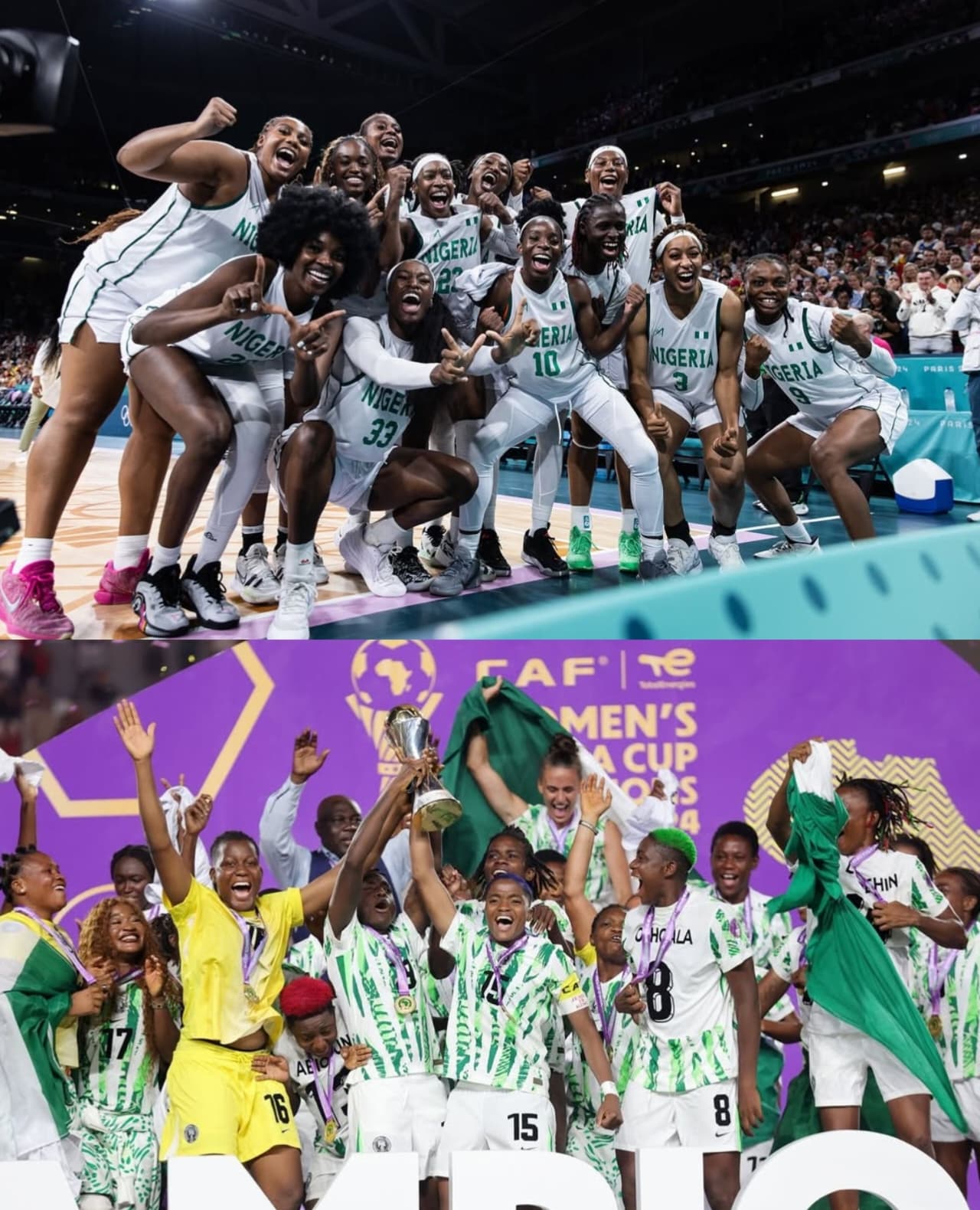

- Name
- Aboluwade God's Treasure AGT
- @Iam_agt
 AlliSports News
AlliSports News

In a country with a sports ecosystem marred by inconsistencies, sub-par performances, and failure to meet expectations, two national teams have constantly been the light at the end of the tunnel—bringing that spark and reminding people why Nigeria bears the tag "Giants of Africa."
From the Super Eagles of Nigeria failing to qualify for the 2022 World Cup, to losing the African Cup of Nations to Ivory Coast in 2023, to the Flying Eagles falling short in the U-20 WAFCON, and with the Super Eagles' 2026 World Cup qualification now hanging by a thread, the state of Nigerian sports can be said to be dwindling.
The Super Eagles of Nigeria have now slumped to sixth place in the CAF rankings, down from third in February 2024—highlighting a downward trajectory for the senior men's national team.

For the Super Falcons, it’s been little attention yet expectations consistently met—and even surpassed. They returned to the Olympic stage in 2022, for the first time since Beijing 2008, despite crashing out in the group stages.
With Randy Waldrum as head coach, the Super Falcons also made it to the World Cup in 2022, reaching the Round of 16, where they narrowly lost to the Lionesses of England on penalties.

Although they faltered in the Women’s African Cup of Nations in 2022, after a penalty shootout loss to Morocco, the Falcons have since pulled chestnuts out of the fire to claim their 10th WAFCON title.
With just two games played prior to the tournament, the Falcons still emerged as African champions once again.
Their first hurdle was a clash against Tunisia—one they cleared easily, breezing past the Carthage Eagles by three goals to nil, with WAFCON debutant Rinsola Babajide starring.
Up next was a tie against Botswana's Mares. It was a more difficult outing, but the Falcons edged it right at the death.
With qualification to the quarter-finals already secured, the Super Falcons had one more group game—an opportunity for fresh blood and to test new legs. It ended in a goalless draw, as Algeria's Fennecs proved too hard to break down.
In the quarter-finals, the Falcons came up against a Zambian side armed with attacking weapons Racheal Kundananji and Barbra Banda.
It was tipped to be a much tougher test for the Super Falcons—but the opposite was the case. Justin Madugu’s girls put five past the Copper Queens and totally shut out the much-talked-about deadly duo.
One more step to the last dance—a clash against familiar foes South Africa, which many thought would be a “bus stop” for the Super Falcons.
Alas, it was not so!
Captain Rasheedat Ajibade gave the Falcons the lead on the stroke of halftime, and although Linda Motlhalo equalised shortly after, Michelle Alozie’s long-range effort proved to be the winner—taking the perennial WAFCON finalists to yet another final.
The final was not so straightforward, as hosts Morocco raced to a 2–0 lead inside just 24 minutes, leaving every Nigerian football fan shocked to the core.
As always, the Falcons would not lie down.
In the second half, a penalty from the star of the final, Esther Okworonkwo, turned the game on its head. Goals from Folashade Ijamilusi and Jennifer Echegini soon completed the comeback.
Alas, the Falcons claimed La Décima and achieved Mission X.
A record-extending 10th title—and one that restores the Queens to their rightful place as Africa's best female national team.

Down South in Trechville Ivory Coast, the D'Tigress were in action at the 2025 AfroBasket Championships, just days after the Falcons' triumph.
Also perennial champions, the Tigress were on the hunt for a seventh AfroBasket title—and a fifth consecutive win.

Their journey began with a mauling on opening day: a 92–45 win over Rwanda, followed by a narrow five-point victory over Mozambique (60–55) in a tense encounter.
Rena Wakama’s side advanced to the semi-finals, where they faced Cameroon—the team that had dealt them their only defeat in ten years.
It was a game for revenge—and they got it. The match ended 83–47, with Amy Okonkwo scoring 18 points, the highest tally of the game.
Next, the Tigress faced Senegal in what was expected to be a competitive tie. But once again, they came out on top—75–68—setting up a repeat of the 2021 final against Mali.
The Tigress stumbled in the opening quarter, trailing Mali by six points early on. But they fought back in the second quarter, leveling the game at 41–41.
In the penultimate quarter, the Tigress put in a brilliant defensive shift, reducing Mali to just eight points as they pulled ahead, 61–56.
It was one more step to victory—the final quarter.
Once again, the Tigress prevailed. Ezinne Kalu, Amy Okonkwo, Victoria Macaulay, and Murjanatu Musa stepped up and led Nigeria to a 78–64 victory.
This win further solidified the Tigress’ status as a dominant force—marking their fifth consecutive title, and seventh overall—still unbeaten since October 2015.


Ten-time African champions—the Super Falcons.
Seven-time AfroBasket champions—the D'Tigress.
Two female teams, constantly flying the flag of Nigeria with pride, rewriting history.
Two teams facing the most neglect, yet still remaining Nigeria’s pride on the African scene. It is no mere fluke, but the result of hard work, grit, and the desire to keep shining the Green-White-Green light on Africa’s biggest stages.